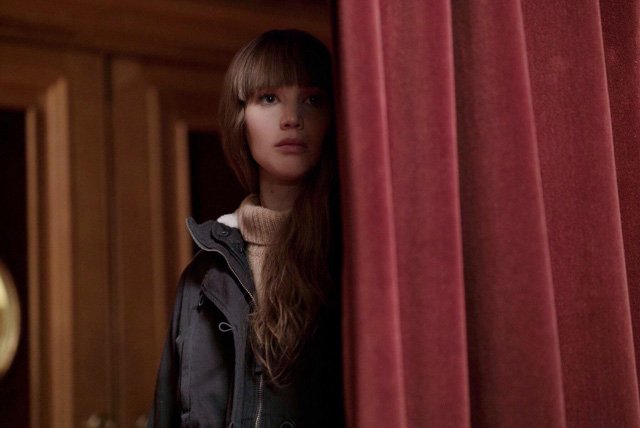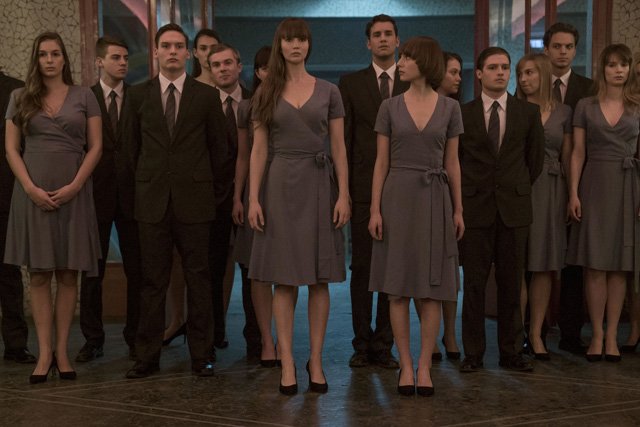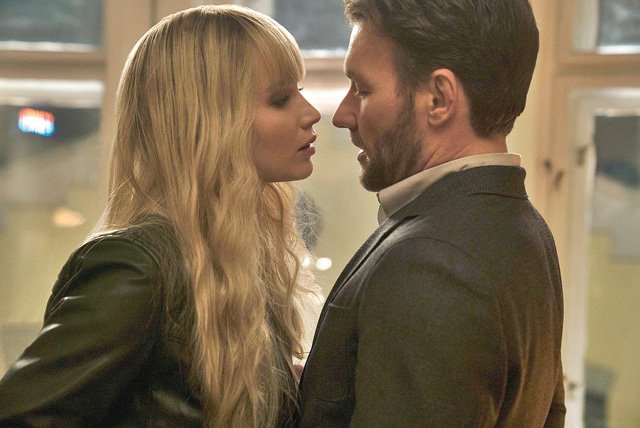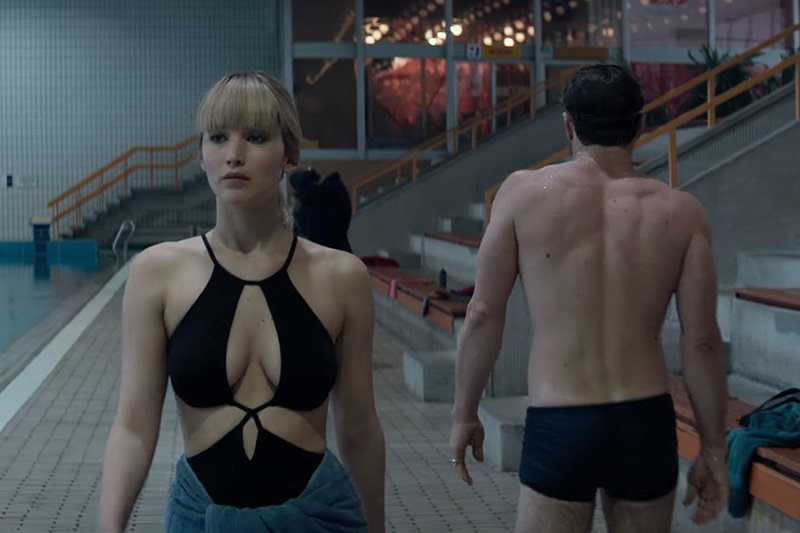CS Interview: Francis Lawrence Talks Directing Red Sparrow
20th Century Fox gave ComingSoon.net the opportunity to have a fun discussion with Francis Lawrence (The Hunger Games: Catching Fire and Mockingjay 1 & 2), director of this weekend’s spy thriller Red Sparrow, starring Academy Award winner Jennifer Lawrence (Passengers) and Golden Globe nominee Joel Edgerton (Black Mass). Check out the interview below, where we discuss the film’s similarities to Hunger Games and how it is a spy film unique among spy films.
RELATED: Francis Lawrence Talks Battlestar Galactica Movie & More!
Red Sparrow promises an intriguing look at the world of espionage. Dominika Egorova (Lawrence), a prima ballerina whose ferocity has pushed her body and mind to the absolute limit. After suffering through a career-ending injury, she finds herself manipulated into becoming the newest recruit for Sparrow School, a secret intelligence service that trains exceptional young people like her to use their bodies and minds as weapons. After enduring the perverse and sadistic training process, she emerges as the most dangerous Sparrow the program has ever produced. Dominika must now reconcile the person she was with the power she now commands, with her own life and everyone she cares about at risk, including an American CIA agent (Edgerton) who tries to convince her he is the only person she can trust.
Red Sparrow is based on the novel by Jason Matthews and also stars Matthias Schoenaerts, Charlotte Rampling, Mary-Louise Parker, Joely Richardson, and Jeremy Irons.

ComingSoon.net: So you and Jennifer had just done three family-friendly, PG-13 movies.
Francis Lawrence: If you call war movies family-friendly, sure. (laughs)
CS: Yeah! Was it a conscious choice for your next film to move towards more dangerous, more adult subject matter?
Lawrence: I didn’t decide, “Oh, I’ve done ‘The Hunger Games’ which was PG-13, I want to do something darker.” It was really the fact that I was finishing ‘Mockingjay 2’ and this book landed on my desk and I read it and I loved it. The hard-R tone came at me from the book. It was just that I found something I loved and I thought it could come together really quickly. It felt cinematic and I had it laid out in my head how the story would work. Hypothetically Jen was interested at the time when I read the book, and we started to develop it and it came together really quickly. I was quite passionate about it, but it wasn’t something where I said, “Oh, now I must do something dark and R-rated.”
CS: With the Sparrow school that Charlotte Rampling runs, you actually run the risk of putting Jennifer in perhaps too similar a situation to “Hunger Games,” where she’s competing against a bunch of young people and the losers get killed, etc. How did you choose to work around that so people wouldn’t make that association?
Lawrence: You know it’s funny because I only really after working on the movie for awhile discovered any sort of similarities to “The Hunger Games,” because it’s such a different world and she’s such a different kind of character. But then, when you look at the basics of her getting inducted into the world against her will, somebody that’s doing what they’re doing to protect their family, that it’s truly a survival story, there’s training… you’re like, “Oh wow, there are actually some similarities!” Look, I’m attracted to stories about isolated people on these lonely journeys that have visceral, relatable dilemmas. I think that’s what drew me to this movie and “The Hunger Games.” I never felt like I was trying to avoid comparing “The Hunger Games” anyway because it already felt so different in terms of world and character.

CS: It’s my understanding that early cuts of this film ran close to four hours. Given what’s in the film already, what were some of the more extreme scenes left on the cutting room floor?
Lawrence: It’s weird, most of it is pacing, a lot of ins and outs and trims from scenes that were longer. Theres not that many huge scenes. There will be some stuff on the deleted scenes in the Blu-ray. I’d say the two biggest things was there was a little bit more of a sense of animosity between Jeremy Irons’ character and Matthias’ character and so there was one big chunky scene that was in the middle of the movie back in Russia where they confront each other about what’s going on with Dominika. The other one was more Sparrow school following this one woman we meet at the beginning of Sparrow school named Anya. In the script phase it was a little like the character of Gomer Pyle in “Full Metal Jacket” where you see what the Sparrow school does to someone who’s a little more fragile. We watch as Dominika is trying to survive and the school starts to unwind this girl and she ends up committing suicide. So there was a little more time spent with her, but other than those two things everything else was just pace rather than wholesale cuts.
CS: Budapest is a beautiful city, I’ve been there a few times. It always seems very much like stepping into a post-WWII landscape, it’s very much frozen in time. Even though the movie is contemporary, were you trying to capture that Cold War-era feeling?
Lawrence: Yeah, a little bit. We were trying to do different things. We were definitely in love with that eastern European architecture, all the classical ornate stuff, the ’60s socialist stuff, the Brutalist stuff. Some more modern things, various aspects of it, but Budapest has a wealth of amazing locations. We ended up shooting everything entirely on location, never spent any time on a soundstage.

CS: Given the current tensions between the United States and Russia, everything that’s in the news, was there any way you had to tweak the film so it didn’t feel too on-the-nose for what’s going on now?
Lawrence: No, not really. I never went into this making a political movie, but I remember when we started this about three years ago there were conversations where the studio would say, “Hey, the Cold War, Russia/America thing feels a little passé,” but it was such a sub-sub layer to us with the countries involved. Then the election happened and all this stuff started coming up in the news, you go, “Oh wow, it’s a little more topical than we thought!” We never held back on anything because of that, and we also didn’t accentuate anything because of that. It just suddenly felt like, “Oh remember that stuff we said wasn’t relevant? It gets to be more relevant now.”
CS: You’re doing a spy movie in the same day-and-age of “Fast & Furious” and “Mission: Impossible” and “Atomic Blonde.” Was it difficult to persuade Fox that, no, you’re not gonna have explosions or car chases or traditional genre set pieces, that this is more a slow burn thriller?
Lawrence: No, not difficult to convince Fox of that at all. Fox has been the most supportive group that you could imagine. I got this book and pitched it to Emma Watts and she liked my pitch and we just kinda went for it. They knew it was hard R, they knew what it was. I kept waiting for that, “You know, it could use a little more action…” Never happened. I think the tricky thing now is that people have such expectations and perceptions for spy films that the general public thinks it’s going to be an action movie even though we’re not selling that in the trailers. People just expect it because of “Atomic Blonde,” because of “Bourne,” because of “Mission” and Bond and all those things, and it’s not. It’s actually quite unique and different and we have to convince the public to go see this movie now. (laughs)
Red Sparrow is now playing in theaters everywhere.
Red Sparrow
-
Red Sparrow

-
Red Sparrow

-
Red Sparrow

-
Red Sparrow

-
Red Sparrow

-
Red Sparrow

-
Red Sparrow

-
Red Sparrow

-
Red Sparrow

-
Red Sparrow

-
Red Sparrow

-
Red Sparrow











